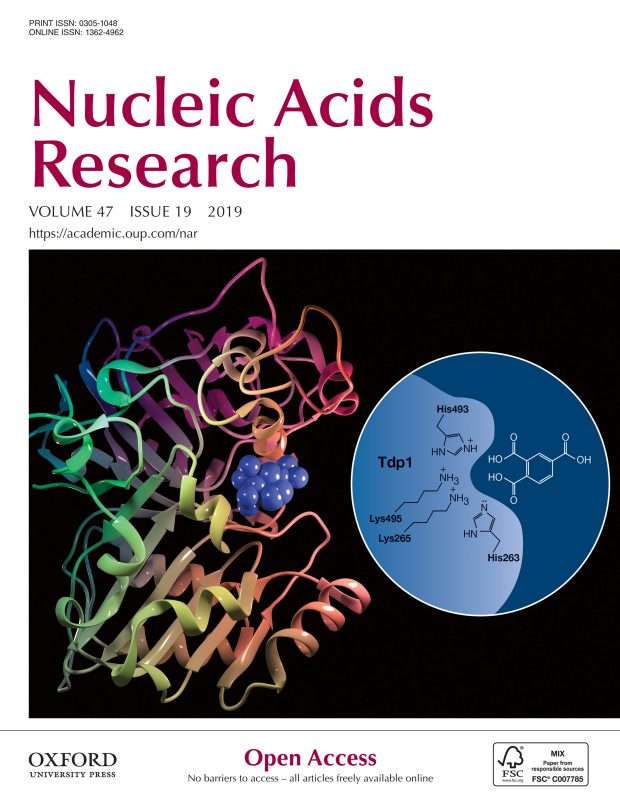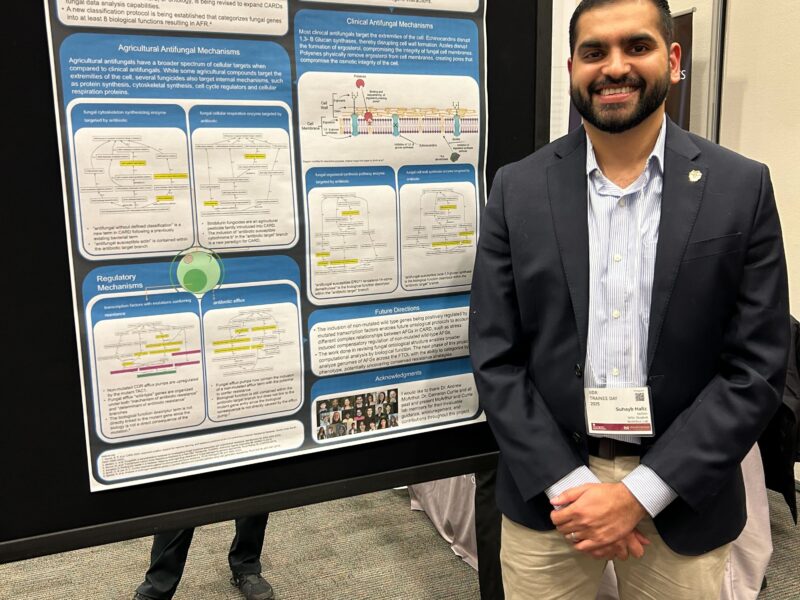 Alcock BP, Raphenya AR, Lau TTY, Tsang KK, Bouchard M, Edalatmand A, Huynh W, Nguyen A-LV, Cheng AA, Liu S, Min SY, Miroshnichenko A, Tran H-K, Werfalli RE, Nasir JA, Oloni M, Speicher DJ, Florescu A, Singh B, Faltyn M, Hernandez-Koutoucheva A, Sharma AN, Bordeleau E, Pawlowski AC, Zubyk HL, Dooley D, Griffiths E, Maguire F, Winsor GL, Beiko RG, Brinkman FSL, Hsiao WWL, Van Domselaar G, McArthur AG.
Alcock BP, Raphenya AR, Lau TTY, Tsang KK, Bouchard M, Edalatmand A, Huynh W, Nguyen A-LV, Cheng AA, Liu S, Min SY, Miroshnichenko A, Tran H-K, Werfalli RE, Nasir JA, Oloni M, Speicher DJ, Florescu A, Singh B, Faltyn M, Hernandez-Koutoucheva A, Sharma AN, Bordeleau E, Pawlowski AC, Zubyk HL, Dooley D, Griffiths E, Maguire F, Winsor GL, Beiko RG, Brinkman FSL, Hsiao WWL, Van Domselaar G, McArthur AG.
Nucleic Acids Research 2019 Oct 29. [Epub ahead of print]
The Comprehensive Antibiotic Resistance Database (CARD; https://card.mcmaster.ca) is a curated resource providing reference DNA and protein sequences, detection models and bioinformatics tools on the molecular basis of bacterial antimicrobial resistance (AMR). CARD focuses on providing high-quality reference data and molecular sequences within a controlled vocabulary, the Antibiotic Resistance Ontology (ARO), designed by the CARD biocuration team to integrate with software development efforts for resistome analysis and prediction, such as CARD’s Resistance Gene Identifier (RGI) software. Since 2017, CARD has expanded through extensive curation of reference sequences, revision of the ontological structure, curation of over 500 new AMR detection models, development of a new classification paradigm and expansion of analytical tools. Most notably, a new Resistomes & Variants module provides analysis and statistical summary of in silico predicted resistance variants from 82 pathogens and over 100 000 genomes. By adding these resistance variants to CARD, we are able to summarize predicted resistance using the information included in CARD, identify trends in AMR mobility and determine previously undescribed and novel resistance variants. Here, we describe updates and recent expansions to CARD and its biocuration process, including new resources for community biocuration of AMR molecular reference data.

